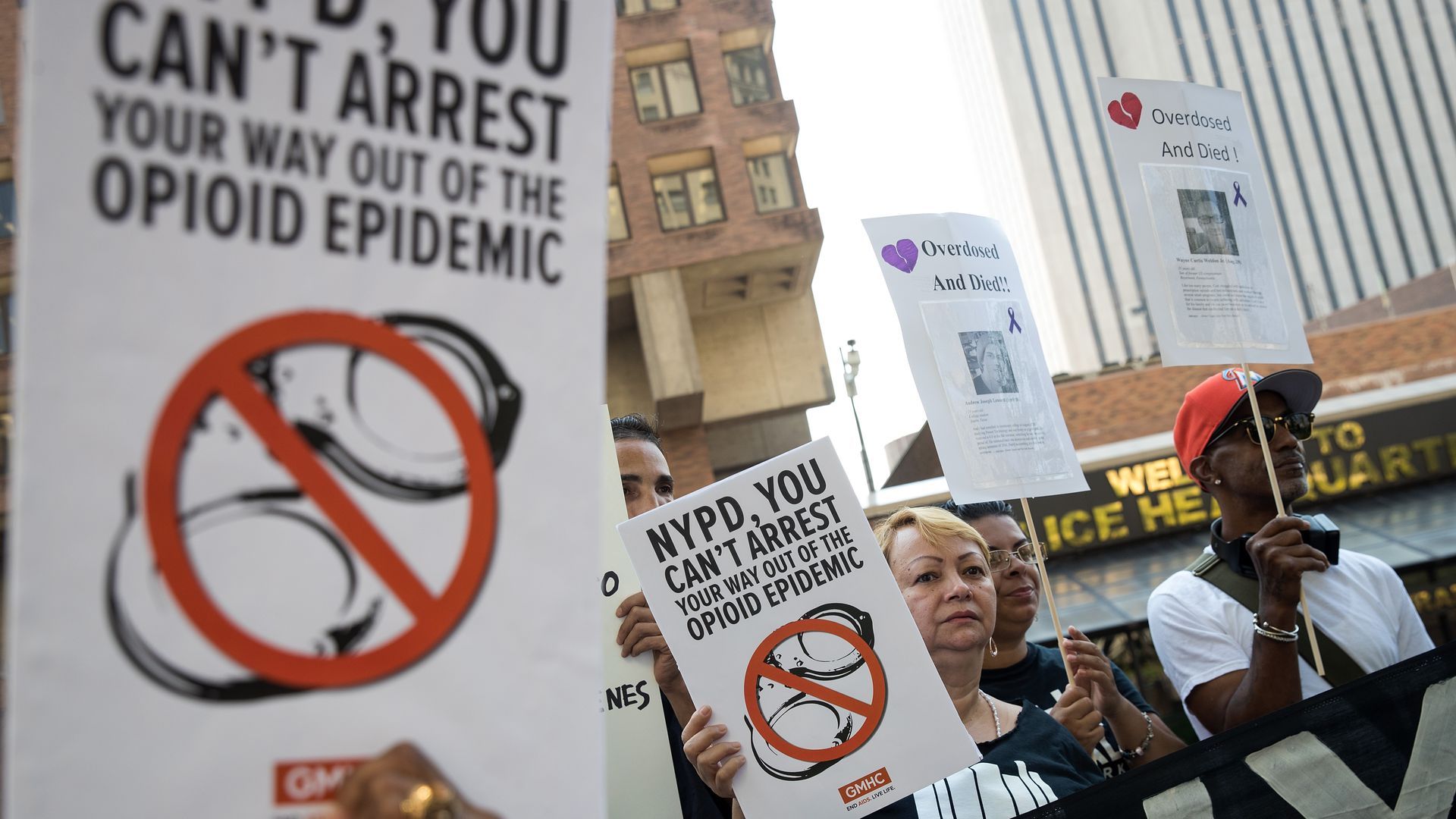Nov 28, 2018 - Health
What the criminal justice reform bill would mean for the opioid crisis
Add Axios as your preferred source to
see more of our stories on Google.

Photo: Drew Angerer via Getty Images
Add Axios as your preferred source to
see more of our stories on Google.

Photo: Drew Angerer via Getty Images